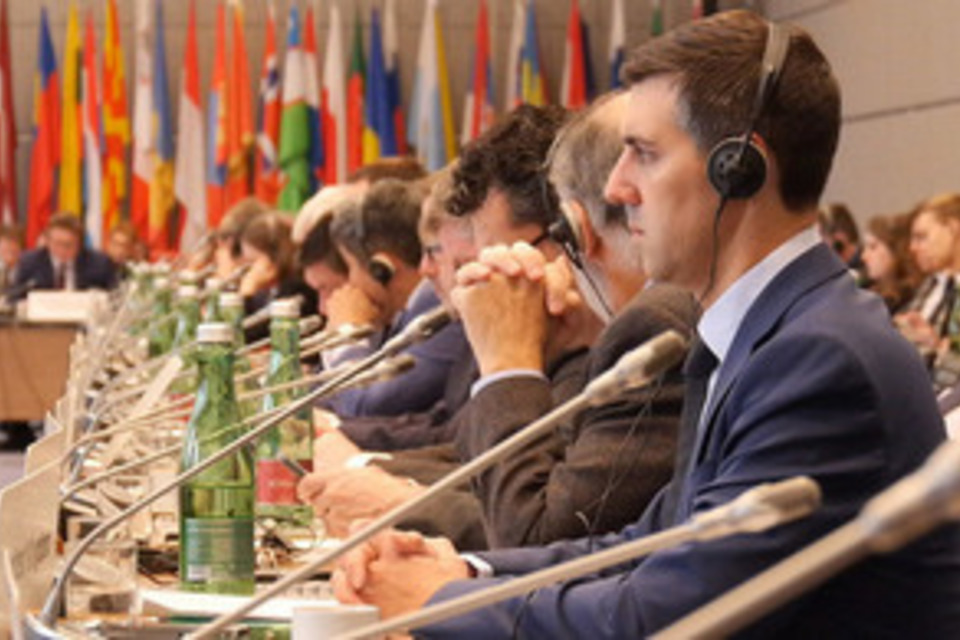World day against trafficking in persons: UK statement
Ambassador Neil Bush highlights the need to eradicate modern slavery and human trafficking, and outlines UK government efforts to tackle the issue.

Thank you Madam Chair,
Every country in the world, including in the OSCE region, is affected by human trafficking, whether as a country of origin, transit, or destination for victims. It is a complex and hidden crime that respects neither borders nor jurisdictions and preys on the most vulnerable in society.
Tomorrow’s World Day Against Trafficking in Persons allows us to reflect and shine a light upon modern slavery and human trafficking. And for us all to come together to end this despicable abuse of human rights.
The UK Government is committed to the eradication of all forms of modern slavery, forced labour and human trafficking by 2030. But we know that combatting the trafficking of human beings requires a whole-of-society approach.
That is why, in September, the UK strengthened our Modern Slavery Act and extended the duty to report on steps taken to prevent modern slavery to all public bodies with a budget of over 36 million pounds. All UK government departments – including our foreign ministry - will publish Modern Slavery Statements in the autumn. And a full review of our Modern Slavery strategy will be published in the spring next year.
As we know, the effort must also be international – it is a global problem and requires a global response. That is the case now more than ever, especially since COVID-19 has increased the risk of exploitation of workers and increased the risks to those vulnerable to modern slavery. This includes joint action on forced labour in global supply chains.
The OSCE is well placed to tackle this transnational issue. I would like to thank Valiant Richey and his team in the Office for their excellent work. The UK is pleased to be able to continue to provide financial support to the OSCE project on trafficking in supply chains.
But there is more that participating States can do. For a start, I would urge OSCE States to consider signing up to the “Call to Action to End Forced Labour, Modern Slavery and Human Trafficking,” launched by the UK at the UN General Assembly in 2017.
To date, the Call to Action has received over 90 country endorsements and we continue to work with countries to turn these commitments into action. This is a sign of the growing international consensus to tackle this heinous crime.
Second, we should review our national track records on implementing the impressive body of OSCE commitments on combatting human trafficking, and, drawing on the valuable OSCE support and resources, scrutinise our own national government supply chains.
Finally, we can do more to build the evidence base to better understand the drivers and vulnerabilities to modern slavery in different sectors and country contexts. The Alliance conference this year, with its focus on demand, provided useful insight on this issue. With a greater understanding of the drivers of modern slavery, we can employ more tools and tactics in the fight.
Thank you.